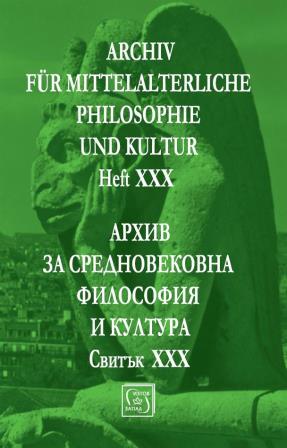Въпросът за трансцендентността и иманентността на Бога в мрежите на византийската философия
The Question of the Transcendence and Immanence of God in the Networks of Byzantine Philosophy
Author(s): Milan ĐorđevićSubject(s): Christian Theology and Religion, Philosophy, History of Philosophy, Theology and Religion, Philosophy of Middle Ages, Eastern Orthodoxy
Published by: Издателство »Изток-Запад«
Keywords: Transcendence; Immanence; Nicholas Cabasilas; Gregory Palamas; Discourse; Theology; Byzantine Philosophy
Summary/Abstract: In Byzantine thought, theology is understood primarily in two senses: first, as the direct experience of knowing God and engaging in immediate communion with Him; and second, as the conceptual articulation of this experience through various forms of discourse–ranging from philosophy and rhetoric to art and music. These two senses are deeply interrelated and mutually conditioning. However, this paper will not explore their historical development, interconnections, or evolution. Instead, we will focus on a central question underlying both senses of theology: the belief that God can be known and that such knowledge can be expressed discursively. To address this, we will examine the question of God’s transcendence and immanence and how these concepts are approached within the Byzantine theological-philosophical tradition. Our analysis will consider three foundational discourses through which Christianity addresses this question: the biblical, the liturgical-homiletic, and the philosophical discourse.
Journal: Архив за средновековна философия и култура
- Issue Year: 2024
- Issue No: 30
- Page Range: 123-144
- Page Count: 22
- Language: Macedonian
- Content File-PDF

